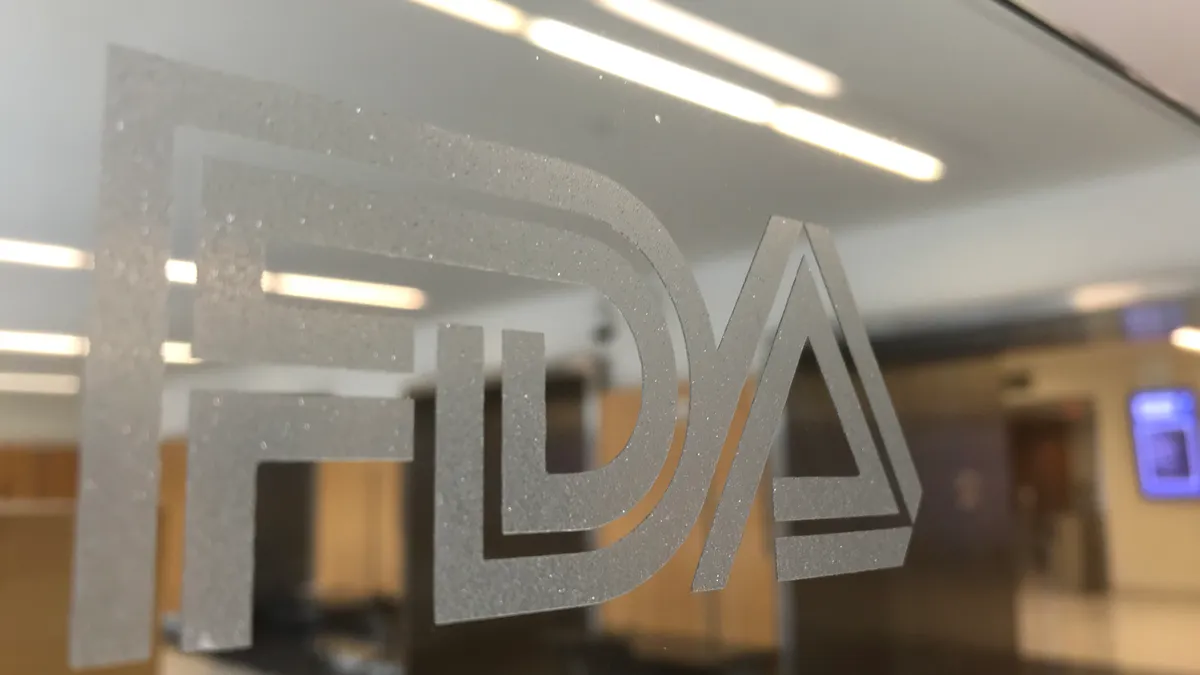Dive Brief:
-
FDA has published guidance on evaluating the impact of coronavirus mutations on COVID-19 tests, as new strains threaten to alter the diagnostics' accuracy, including the potential for false negatives.
-
The text features recommendations for how developers of molecular, antigen and serology tests can minimize the impact of viral mutations on their products and assess if a currently circulating variant is affecting their results.
-
Janet Woodcock, acting commissioner at FDA, asked manufacturers “to be vigilant and make sure that their tests are not impacted adversely by changes by the virus.”
Dive Insight:
The ability for SARS-CoV-2 variants to trigger false negatives is now well established. Last month, FDA issued an alert about the potential for tests to miss infections with variants including B.1.1.7, the more transmissible virus first found in the U.K. Products including Thermo Fisher Scientific’s TaqPath are unable to spot the mutated part of the genome, although they still correctly diagnose infections by detecting other parts of the virus.
FDA wants diagnostic companies to factor the potential for variants to evade detection into their test development and monitoring, as Jeffrey Shuren, director of the Center for Devices and Radiological Health at FDA, explained on a call with the media.
“Can manufacturers go ahead and assess their tests? The answer is yes," Shuren said. "In fact, we ourselves have been monitoring for the impact of mutations on molecular tests throughout the pandemic, looking at publicly available databases as mutations arise — and particularly as they may become more prevalent — doing computational modeling in our own databases of those tests and then, where there could be an impact, we've been working with developers of those tests to then assess if in fact performance has been impacted. That informed the safety alert."
Leading COVID-19 test makers like Abbott Laboratories and Becton Dickinson recently said that they are focused on new virus variants and testing product effectiveness and accuracy.
Dave Hickey, executive vice president and president of BD's life sciences division, said during a recent earnings call that after the company ran computer models testing new variants on the BD Max testing system, there was no impact on the test, and there was no impact on the Veritor rapid antigen test after an analysis was done for the Brazil, South Africa and U.K. variants.
The company is continuing to monitor test performance with variants that are known and any others that may come about, according to Hickey.
Guidance released by FDA on Monday is intended to help the diagnostic industry mitigate the impact of viral variants on test accuracy. The policy asks developers of molecular tests to evaluate how their products will perform against current and potential future variants before seeking authorization. FDA wants developers to consider testing for parts of the genome that remain the same across variants. Testing for multiple parts of the genome further mitigates the risk of false negatives.
Once a molecular test is on the market, FDA is asking manufacturers to periodically assess whether new mutations affect performance through sequence alignment of probe sequences with publicly available SARS-CoV-2 genomes. FDA wants manufacturers to consider if the mutations are likely to reduce test performance by 5% or more.
The situation for developers of antigen tests is more challenging. Changes to the genome of the coronavirus could affect the antibody-protein interactions that antigen tests used to detect the virus.
Shuren said FDA is looking at multiple ways to assess antigen products, including in silico modeling and the evaluation of the tests against viral genetic material. FDA is “working with other parties” to determine the next ways to evaluate antigen tests, Shuren said, but is yet to reach a conclusion. The FDA director hopes to have more information “soon.”
For now, FDA’s official policy on antigen tests is limited to a 350-word section that also addresses the impact of viral variants on serology kits. FDA wants developers of antigen and serology tests to consult the agency during development to ensure they are up to date on its position. The agency wants companies with tests on the market to routinely monitor for viral variants and assess their impact. FDA is yet to explain how antigen and serology test manufacturers should perform those assessments.
While recognizing the challenges of assessing antigen tests, Shuren said that “at the present time” FDA has not seen any signals that variants are adversely affecting results. Shuren said the public can have confidence that antigen tests can be used as indicated on their labels.












